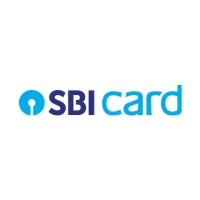
SBI Card
SBI Card was launched in 1998 with the State Bank of India, India's largest bank, as the majority stakeholder. In March 2020, SBI Card was listed on BSE and NSE. Today, SBI Card is India’s largest pure-play credit card issuer with over 19.5 million cards in force, as of September 2024. Its wide array of products and services caters to a diverse range of customer segments across India, right from new-to-credit to super premium. The SBI Card brand is based on the value proposition of 'Make Life Simple'. The proposition manifests in SBI Card’s continuous efforts to simplify the lives of its customers, employees and other key stakeholders. Customer-centricity, supported by the values of trust and transparency, is core to SBI Card’s ethos.






